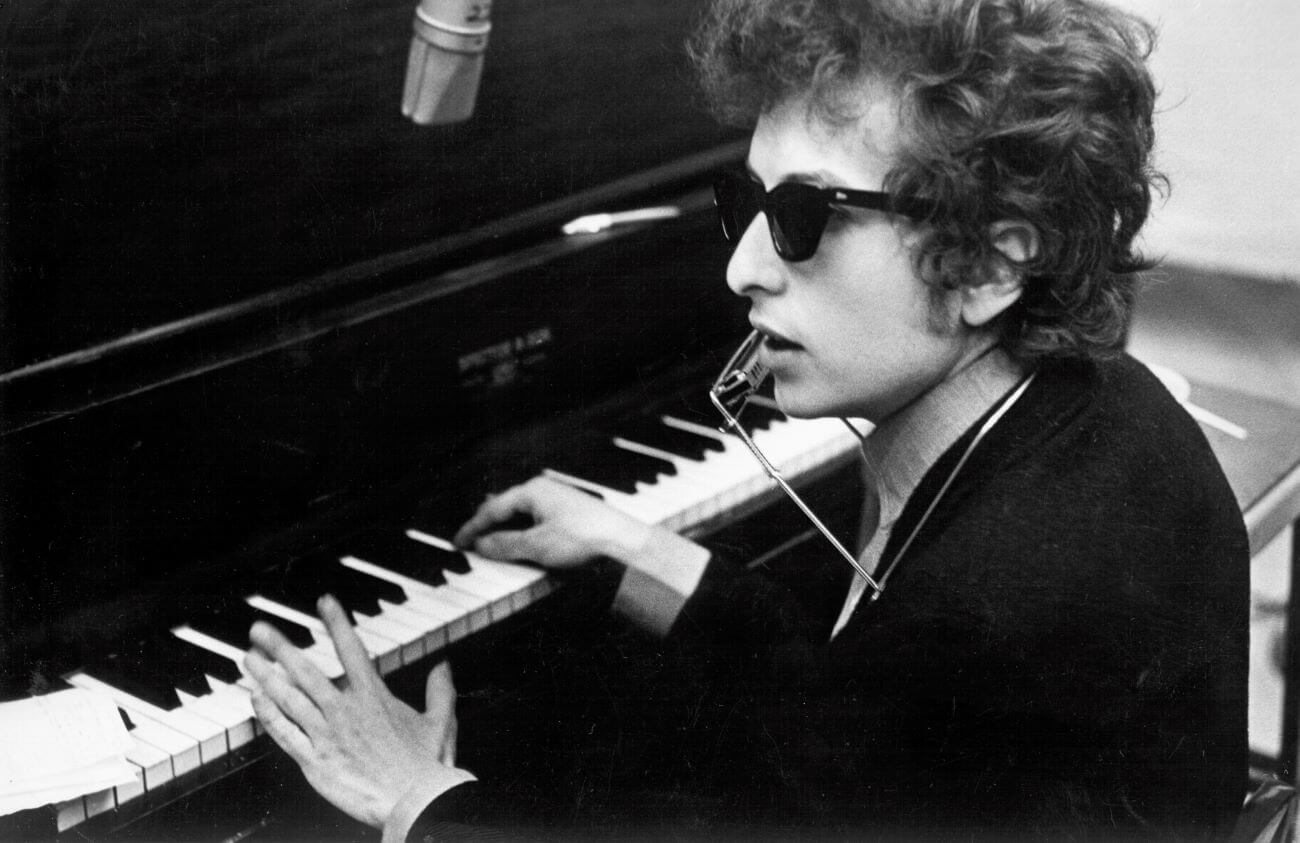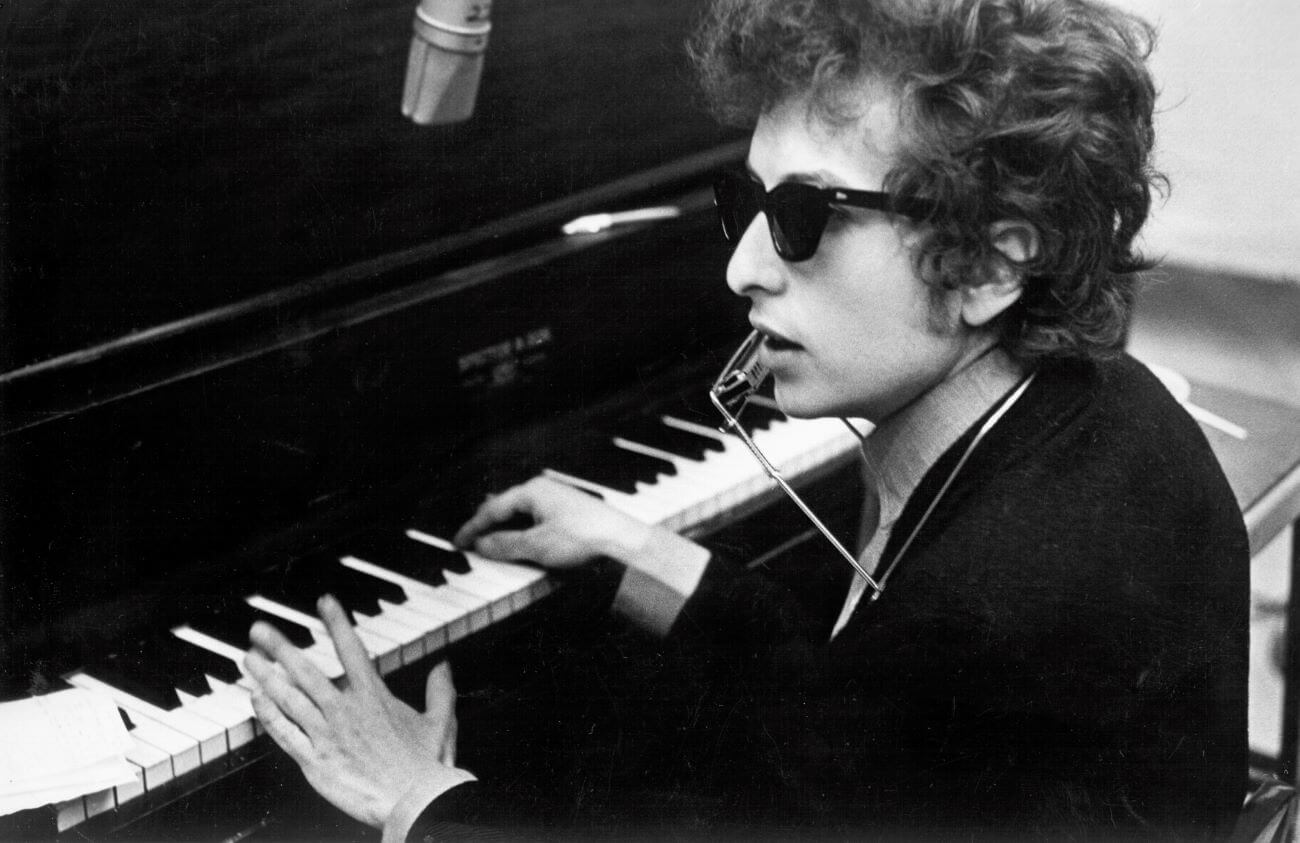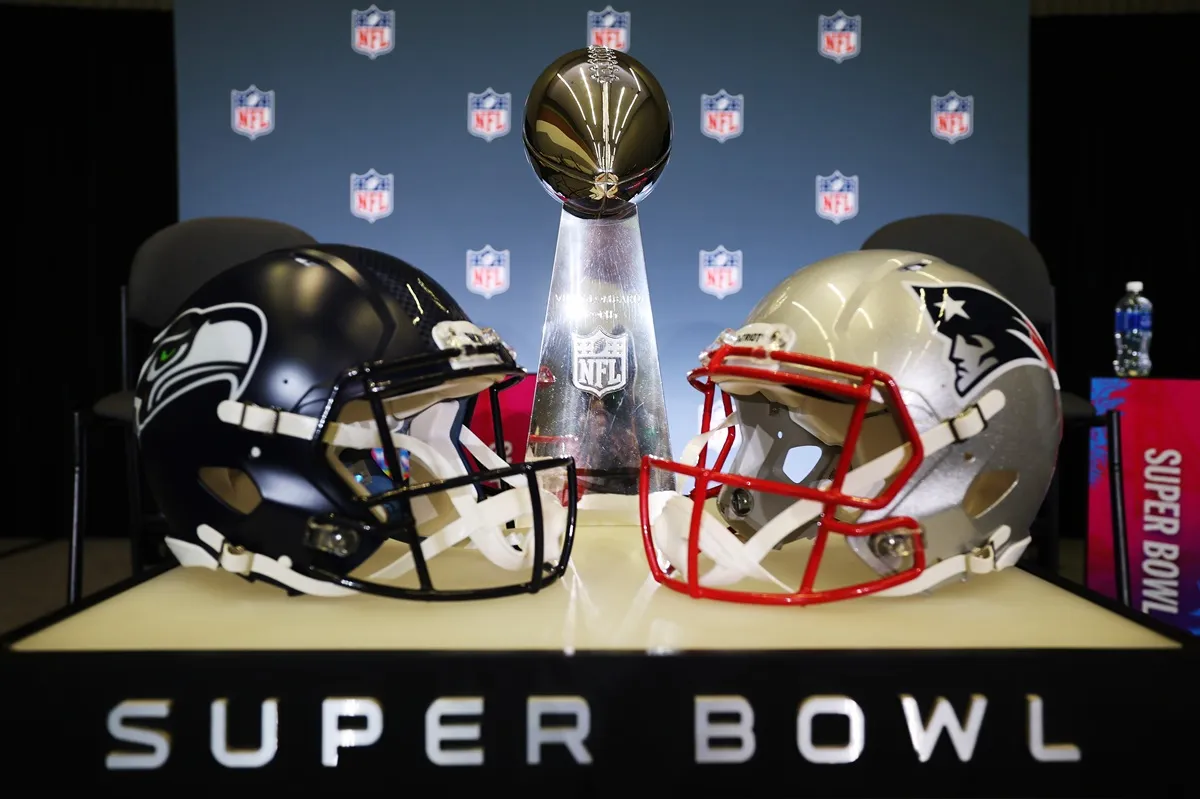
Why Bob Dylan’s Lies Are Actually Good for His Image
When Bob Dylan published his memoir Chronicles: Volume One in 2004, many experts on the musician noted that he lied his way through the book. This wasn’t necessarily surprising to them, though. Since he became a public figure, Dylan has told a number of fictions and half-truths about himself. While this might be damaging to another celebrity, it fits the image Dylan has crafted for himself.

Some suspect that Bob Dylan included a number of lies in his memoir
In interviews and his memoir, Dylan has told stories about running away from home as a child, losing contact with his parents, joining the circus, and more. Dylan biographer Clinton Heylin said that entire sections of Dylan’s memoir were essentially fiction.
“Jesus Christ, as far as I can tell almost everything in the Oh Mercy section of Chronicles is a work of fiction,” he said, per Rolling Stone. “I enjoy Chronicles as a work of literature, but it has a much basis in reality as [Dylan’s 2003 film] Masked And Anonymous, and why shouldn’t it? He’s not the first guy to write a biography that’s a pack of lies.”
Heylin said that early drafts of the book were more truthful, but Dylan appeared to have made significant changes while editing.
“What really perplexes me is that I’ve seen only a smidgen, but enough, of the early drafts of Chronicles to wonder what happened,” Heylin said in a separate interview with Rolling Stone. “The early drafts, of course they’re Dylanesque, of course they see things very much through his prism, but there’s no conscious attempt to literally destroy history, to bend it to your will and show it to be a sham. The book that was published was very much that.”
The lies about Bob Dylan add to his public image
Dylan has fictionalized much of his public image. While this may mean that people will never know what Dylan is really like, it doesn’t particularly matter.
As a celebrity, Dylan has achieved near mythological status. People collect recordings, writings, piano keys, and even cigarette butts from the musician in an effort to understand him. In the same way that people pore over his lyrics, fans examine the stories Dylan has told about himself to find meaning. He deals in myths with his music and, through vagueness and outright lies, has become a legend himself. In this way, Dylan’s untruths are beneficial to his public image.
Dylan even admitted that he admired mysterious public figures, hinting that he deliberately crafted himself this sort of image.
“Hank Williams,” Dylan said when listing people he’d want to interview (via GQ), “Apollinaire, Joseph of Arimathea, Marilyn Monroe, John F Kennedy, Mohammed and the Apostle Paul. I’d like to interview people who died leaving an unresolved mess behind. And who left people for ages, to do nothing but speculate.”
He may have learned from one of his heroes
Dylan may have first been inspired to mythologize his history by his idol, Woody Guthrie. Guthrie’s autobiography Bound for Glory was a partially fictionalized account of his life, and Dylan dug through it voraciously.
“I went through it from cover to cover like a hurricane, totally focused on every word, and the book sang out to me like the radio,” Dylan wrote in Chronicles. “Guthrie writes like the whirlwind and you get tripped out on the sound of the words alone. Pick up the book anywhere, turn to any page and he hits the ground running. Who is he?”
Dylan modeled his early career off of Guthrie. He even turned himself from Robert Zimmerman to Bob Dylan based on Guthrie’s speech, clothing, and music. Perhaps when he read Guthrie’s book, he saw a way to cement his own position in American mythology.


